Recently, a lot of friends have been concerned about their child’s schooling and over all behavior, specifically those in the adolescent years. I have also struggled with my children during those difficult developmental years, and totally understand their frustration. A few years ago, after adopting a child with severe brain injury, I began doing lots of research and study of brain growth and development. I actually became so intrigued with the research and study that I became some what obsessed with it. It was not easy at times to understand the language and terminology used in the medical papers I was reading. I would often have to spend hours looking up the words and figuring out what it all meant. But, I enjoyed the work, and found what I was learning very helpful to me as a mother and teacher.
So, since I found the materials helpful in training my children. I thought maybe I would share a little bit of it with you. So, here is my discoveries in laymen’s terms.
Our brains are a magnificent creation of an awesome creator. They begin development in our mother’s womb and continue to adapt and change as long as we are living. But there are some critical times of development and change. The majority of brain development and change happens in two chunks of time. The first begins in utero (that is in our mother’s womb) and continues until about the age of 2 and a half three years. This is not exact, because each person is a unique creation of God. But, for the most part that first rapid stage of brain development is finished by age three. In this first phase of rapid brain development, our bodies are also growing and changing at a rapid pace. Therefore, our bodies and brains require a great deal more sleep than someone who has already completed this phase of life. The other rapid growth phase is in adolescence (when we go through puberty). This phase of development is when our bodies and brains prepare for adulthood. Adolescent puberty can begin as early as age 8 or as late as age 15. Girls typically go through adolescence earlier than boys. Most people complete the phase of puberty in approximately 2 years time. But some can go through this phase in as many as four years time. Again each person is different.
During the phase of adolescence, the body is making changes too. This is often a good sign for parents to recognize that a child is in a new phase of life. Changes included voice changes, facial and/or body hair growth, body odor, breast development, as well as, other curves in the body. Often children will grow inches in a short amount of time during puberty. And of course, there are the onset of menstrual cycles and such. Usually, before a parent even sees the physical changes in their child, they will see emotional and behavior changes.
Why is that?
The answer is the brain is changing and going a little crazy with all the growth and changes.
So, what is happening in the brain, and how can we help our children and students during these times of change?
When our brains begin development in utero, it starts at the brain stem. This is the part of our brain that tells us to breath, keeps our blood pressure in check, regulates our body temperature and so on. Basic skills for keeping a body alive is held here in our brain stem.
After we are born, we rapidly build brain on top of this brain stem. Our midbrain is developed on top of our brain stem, very, very quickly after we are born. It is the part of the brain that tells us to eat, sleep, stay dry, stay warm, etc. In recent, years it has been found that if this part of the brain isn’t developed properly in those first five months of life, that essential components of the next layers of our brain will be missing. So, if a baby is left hungry or wet, is overfeed or not given enough rest, the development blocks of the brain will be all off. The cool thing is we can go back and redevelop this part of the brain. It just requires consistent nurturing of a person’s physical body to start filling in those missing blocks. In a healthy infant and a healthy environment, a baby will continue to rapidly develop this midbrain building blocks up until about the age of three.
After this massive development of the brain stem and midbrain in those early years, our brain development will slow down. We will continue to develop security in our minds by the basic needs of life being met, and we will also begin to develop confidence in being able to meet some of our own basic needs. But, the next few years from about age three to about age 10 the brain growth will be slow and steady.
Then all of a sudden, it will happen the next two layers of the brain will begin to develop. Now if you recall in the first two sections of the brain we did not have a whole lot of emotional or attachment development, we didn’t have any sexual development, nor do we have reasoning and planning skills. You see in God’s design of the brain, he meant for us to first feel secure and safe, and then build on that feeling.
(Unfortunately, children are often exposed and expected to understand and behave at a much higher brain level than God’s design intended. What happens when we over expose our children’s minds to things that they are not truly ready for? It is chaos in the brain. Each time our children are exposed to things beyond their brain stage, it builds brain blocks in areas that are missing solid foundations. Each time our children are expected to behave or learn things beyond their developmental stage, it again builds brain blocks without foundations. )
But, if we recognize that God designed a time for our children to develop security and confidence in their brain, and we allow them the years he created for that to happen to be years of peace and encouragement, we may find that the next learning stages are more enjoyable. We need to consider less exposure to mature content and more exposure to Godly character in love and nurturing.
So, back to the adolescent brain age.
Around the age of ten, God designed it that our brains would begin another rapid build on a firm foundation. The next level of development is in the Limbic part of the brain. This is the part of the brain that handles our emotions, our sexual awareness and drive, and our attachment to people or things. So, to recap, first at the stem we learn how to live, breath, as a organism. Second, we learn how to survive and be safe in our environment. Then next, we start to develop the part of our brain that tells us who we are, who others are, who God is, and how to live with others. But, this brain growth is happening so fast, that we are often an emotional roller coaster. We are exhausted by the work our bodies are doing, and we can’t figure out what in the world is going on most of the time. At the same time that all this building is going on in the Limbic level of our brain, God decided to start building on the next level too, even before that level is finished.
What is on the top level of our brain masterpiece. It is the cortex. This is the area of the brain that deals with affliction, concrete thought and abstract thought. This the place where we learn how to manage life. This is the part of the brain that is developed and built last.
So, are you seeing it. We want our ten year old, our 12 year old, and even our fifteen year old to behave and act in ways that their brains can’t even comprehend. Of course, all the parts of our brain can and do develop at different phases of life, but if we try and build blocks without first making a secure foundation, we will find our children have gaps in their skills and comprehension.
So, how do we make sure we are building our children’s minds for optimum success. I can honestly say I don’t have all the answers, but here are somethings I have learned.
1. If it is in your power to make sure a baby is well feed and cared for than do it. This is the foundation God designed for best brain growth. It is better to feed and comfort a baby than to not offend a mother.
2. Teach new mom’s to feed their babies and to read God’s Word to them.
3. Let your children be children. Don’t expect them to understand and comprehend things they can’t. Don’t expose them to things that are beyond their developmental age. Choose books, movies, and activities that may seem babyish to your friends, but are actually just right for your child. Remember, a safe and secure environment is the best environment for your child’s mind. A home that is peaceful and calm is better for your child than a home that is full of school work lessons and arguing and stress.
4. When a child begins to show signs of puberty, be patient, be encouraging, and be a good listener. This is actually a very stressful and tiring time for a child. If you are constantly frustrated and angry, your child thinks there is something wrong with him, and becomes fearful.
5. The best time to really dig into school work and skill development is the years directly following puberty. Your child is now ready to develop brain blocks that will make them a successful man or woman. This is typically high school age to about age 25.
6. Lastly, pray over your children, pray with your children, pray for your children, and read and study God’s Word with your children.
In closing, maybe you have a child that is missing foundation and you are wondering how to build good foundations now. I want to encourage you that it can be done. In my next post, I will share ho God has healed my son’s brain, and what we did that we believe made all the difference.
Related Posts:
Written by Katie
4 comments
Leave a Reply Cancel reply
Things to know as you visit our site
 We are Bible believing, scripture only people. We love to learn about the Hebrew roots of our faith. We believe it is important to not add or subtract from the Divine Word of God. The compiled scriptures that agree with one another and have no contradiction is the 66 books of what is commonly referred to as the Christian Bible, or the Holy Bible.
We are Bible believing, scripture only people. We love to learn about the Hebrew roots of our faith. We believe it is important to not add or subtract from the Divine Word of God. The compiled scriptures that agree with one another and have no contradiction is the 66 books of what is commonly referred to as the Christian Bible, or the Holy Bible.
These writings were originally written by men inspired by God. They were written in the language of the writers and readers of the original documents. Many of the original documents have been lost, but God’s Word is eternal and remains. Therefore, it is important to us to study, learn, and consider the culture, history, and language of the original writers of the scriptures.
In our studies we have learned that the true name of God is Yehovah, and His son, our Messiah, is named Yeshua. Therefore, as you read our posts we will use the Hebrew names of God and our Messiah.
Popular Posts
- Whole Bible Believer, Torah Observant Christian
- Parenting an Adult Child that is Disrespectful and…
- Thinking on Sign on the Hand, Symbol on the Forehead
- Homeschooling Torah (my official review of the best…
- Copying the Bible (FREE Homeschool Copywork guide printable)
- What was Job’s sin? Why did God let Job suffer…
- Demons, devils, spiritual beings, real or not real???
- Christmas, a Biblical Perspective
- Fall Feast dates 2023!!! It’s Coming!!!!
- Oh, Be Careful Little Mouth What You Say
Categories
- 40 days of Prayers for my Husband
- Adoption
- All about Animals
- Baking
- Bible Reading Challenge
- Biblical Living
- Biblical Marriage
- Birth Stories
- Carman Family Life
- Carman Farming
- CEF (child evangelism fellowship)
- Color Thru the Bible
- Copy Work
- Danger of Homeschooling Series
- Day in the Life of a Big Family
- Dyslexic perspective
- Fall Feasts
- Family
- Family Rule Book
- For My Children
- God's Calendar and Biblical Feasts
- Gospel of Yeshua Messiah series
- Holidays
- Home Discipleship
- Home Schooling
- Homemaker
- Journey series
- Journey to Redemption
- Katie, the Cleaning Lady
- Katie's Ramblings
- Kid Posts
- Mental Health
- Name Series
- Organization (Hirn Helpers)
- Parenting
- Popular Posts
- Prayer Challenge
- Prayer Challenge for the Children
- Rachel's Writings
- Sabbath
- Spiritual Warfare
- Spring Feasts
- Ten Days of Prayer Challenge
- Torah Talk
- Torah/Bible
- Tyler's garden
- Tyler's Tidbits

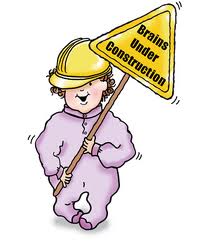
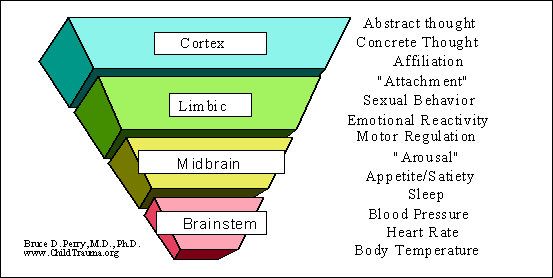
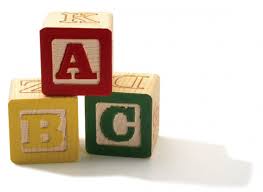
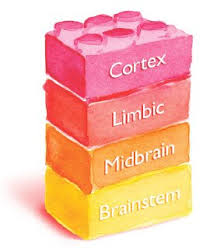

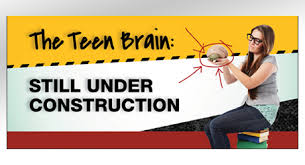




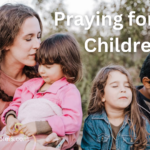


Very encouraging! Thank you!
Fred, Thank you for your response. I totally understand your questions on how can one section of scripture say forever and another say, no more. I see your definition of olam. But I think it is best understood as eternally.
So if that is true, how can I reconcile your verse in Romans, Colossians, and Galatians. I found that when I read these scriptures in context they say we should follow the law of YHVH, but not the laws of men nor the traditions of men. We have to remember the times these verse are written in. Here is a great study on the Sabbath. If you have time, I would encourage you do it, and then let me know if it makes sense to you. http://anneelliott.com/downloads/sabbath_study.pdf
MAy God bless you in your diligence.
Hi!
I’m new to your web sight and am impressed by your spiritual conviction, love for our Lord and family values.
One area I struggled with for awhile is observance of the Sabbath. I spent a lot of time in the scriptures and prayer as I was led to believe that Christ’s death fulfilled the Old Covenant, gave us the New Covenant and did away with the Old, and since the Sabbath wasc part of the Old Covenant, we are no longer obligated to observe it. This was confirmed in the 2nd chapter of Colossians and Col. 2:20, Romans 7:1-6 and Galatians 3: 1-5 “chastises” the early Christians for continuing to follow the Law. There are many other scriptures that confirm this and we know the early Christians often met on the 1st day of the week. Yet Leviticus tells us the Sabbath is FOREVER. I continued to pray and search the scriptures for an answer when I read somewhere that the English language misinterprets the word FOREVER, for in Hebrew, it means “a very distant time”.
I began researching this through Hebrew dictionaries, web sights, etc. and all confirmed this. I probably looked at 10 or 12 web sights, but here are three that represent a balanced consensus as one is Jewish, one Evangelical Christian and one Messianic Christian. Here the are:
http://www.ancient-hebrew.org/27_eternity.html —“The word olam is used for time for the distant past or the distant future as a time that is difficult to know or perceive. This word is frequently translated as eternity or forever but in the English language it is misunderstood to mean a continual span of time that never ends. In the Hebrew mind it is simply what is at or beyond the horizon, a very distant time. A common phrase in the Hebrew is “l’olam va’ed” and is usually translated as “forever and ever” but in the Hebrew it means “to the distant horizon and again” meaning “a very distant time and even further” and is used to express the idea of a very ancient or future time.
http://www.biblepages.net/hn13.htm —On the meaning of the old Hebrew word olam
Regarding bible-translations which make it seem that the Old Covenant was to be ‘everlasting’.
Please always get the latest version of this document, from the Bible Pages web site, via this address: http://www.biblepages.net/hn13.htm
Many English bible-versions contain such expressions as “for ever” and “everlasting”. An example: The Old Testament part of NASB95 contains the expression “forever” in almost 300 verses, and the word “everlasting” in more than 100. The way NASB95 and many other versions translate some of those passages, might cause casual bible-readers to think that the Old Covenant with its rules and rituals was to last “for ever” and be “everlasting”. But, that is not the case.
This has to do with the translation and meaning of the old Hebrew word olam. Below, it will be shown that it simply meant “a long time”, either past or future, but not “for ever”
http://jewishroots.net/library/anti_missionary_objections/how_long_is_forever.html
Olam – The Definition:
The Hebrew word olam means in the far distance. When looking off in the far distance it is difficult to make out any details and what is beyond that horizon cannot be seen. This concept is the olam. The word olam is also used for time for the distant past or the distant future as a time that is difficult to know or perceive. This word is frequently translated as eternity or forever but in the English language it is misunderstood to mean a continual span of time that never ends. In the Hebrew mind it is simply what is at or beyond the horizon, a very distant time. A common phrase in the Hebrew is “l’olam va’ed” and is usually translated as “forever and ever” but in the Hebrew it means “to the distant horizon and again” meaning “a very distant time and even further” and is used to express the idea of a very ancient or future time.(1)
I continue to believe the Holy Spirit has shown me the Sabbath went the way of the Old Covenant, but I remain open and wonder what your thoughts are.
In Christ,
Fred
Thanks for your prompt response to my comment. I think we’ll have to agree to disagree on the definition of OLAM. You say it is best understood as eternally, but it doesn’t say that anywhere. All I’ve found so far is the Hebrew meaning-IN THE FAR DISTANCE, and that clarifies any conflict between the Old and New Covenant.
I think we’ll have to agree to disagree on the interpretation of the verses in Romans, Colossians, and Galatians also as I’ve read the entire chapters and context. I may be over simplifying it , but Romans 7:6 sums it up pretty well. “But now by dying to what once bound us, we have been released from the law so that we serve in the new way of the Spirit, and not in the old way of the written code”.
Thanks for your referral about the Sabbath. I’ve seen it before and it really doesn’t change what the Holy Spirit has shown me as there are things I disagree with there too.
I will continue to follow your web sight as we certainly have more we agree on than disagree, but I believe the Messiah has come and He gave us the New Covenant in His blood and the Old has been fulfilled and replaced (Heb 8:13). I believe that is what He meant when He said “It is finished”.
In Christ.
Fred